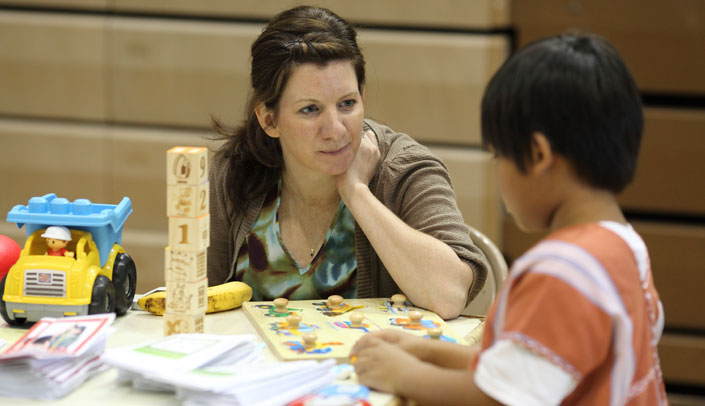For Tyler Irvine, it’s all about community.
The College of Public Health student will be volunteering at the Fourth Annual Bridge to Care Health Fair. The fair will provide free health screenings at Omaha’s World Refugee Day on June 21.
Service Learning Academy
Bridge to Care is a legacy project of the Service Learning Academy (SLA) in the College of Public Health.
The SLA expands community-campus partnerships through the integration of service learning educational experiences in local, regional, national and international community-based organizations.
The goal of the SLA is to provide students in public health and other health professions with the opportunity to experience the unique service learning pedagogy and prepare competent and community-responsive health professionals. The SLA offers unique interdisciplinary and interprofessional service-learning opportunities for undergraduate and graduate level students enrolled at UNMC campuses.
It will be Irvine’s second year volunteering at the event. Last year, he staffed the “emotional well-being booth,” the fair’s attempt to address the causes and effects of mental stressors that can face members of a refugee community.
“We have people to staff that booth who work in refugee mental health. We have translated brochures on stress management, adjusting to a new culture, substance abuse, those types of things,” he said.
The pressures of acculturation can be a health factor for members of the refugee community, but the health fair deals with other aspects of health care, as well, including:
- Dental screening.
- Vision screening with free glasses for those in need.
- Blood pressure screening.
- Blood sugar test.
- Body mass index (BMI).
- Health education.
In addition to preventive care, the fair is concerned with increasing the refugee community’s health literacy, Irvine said.
“This community can have a very low health literacy,” he said. “For example, they don’t know what it means when a doctor is feeling around their neck or touching them up under their armpits. It’s all new to them, and it can be quite scary the first time.”
The fair is a good setting to familiarize the refugees with procedures they may encounter at a doctor’s office. Irvine said this increase in health literacy is a major focus for Bridge to Care, a legacy program through the College of Public Health’s Service Learning Academy.
Who is a refugee
A refugee, according to the Refugee Act of 1980, is a person who “owing to a well-founded fear of being persecuted for reasons of race, religion, nationality, membership in a particular social group, or political opinion, is outside the country of his nationality, and is unable to or, owing to such fear, is unwilling to avail himself of the protection of that country.”
In the past decade, refugees have resettled in Omaha from Sudan, Bosnia,
Afghanistan, Iraq, Liberia, Somalia (and Somali Bantu), Burundi, Ethiopia, Burma and Bhutan. The International Center of the Heartland estimates there are up to 15,000 Sudanese (the largest group in the United States) and about 5,000 each of Somali and Burmese in Omaha.
“Through sheer repetition, over time you start to increase their overall health literacy,” he said.
For Irvine, a master’s student in community-oriented primary care, “public health” is a worldview — a way of seeing the community as interconnected. He first began working with members of Omaha’s refugee community as an undergraduate student interning at Lutheran Family Services of Nebraska.
“Omaha’s had such a large influx of refugees that to ignore these 10,000-15,000 people is going to have great effects — on the school system, the health care system, employment, housing,” he said. “We have to reach out to them and see what their problems are. We have to attend to their needs because we’re all part of the community.”
